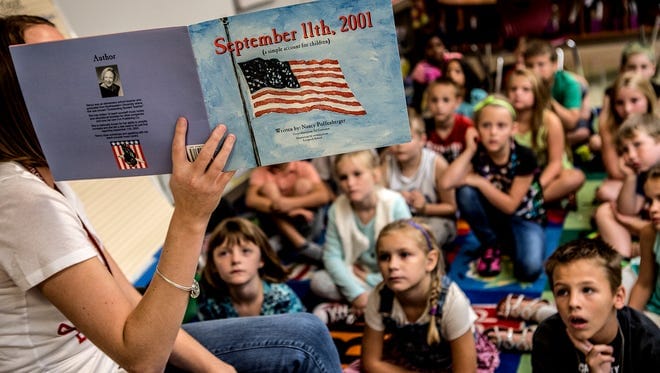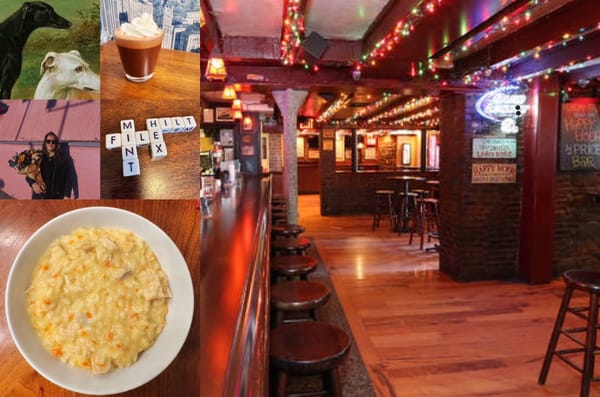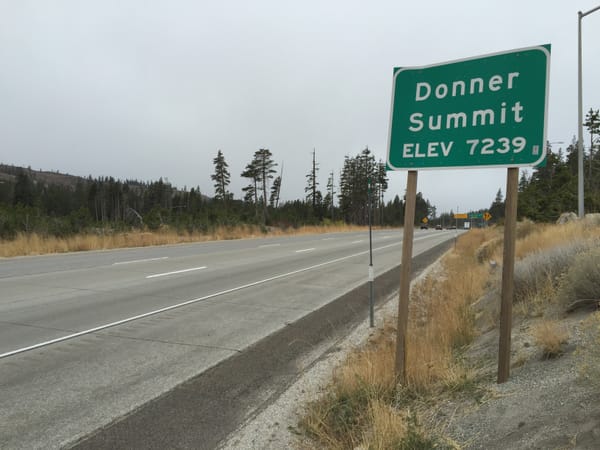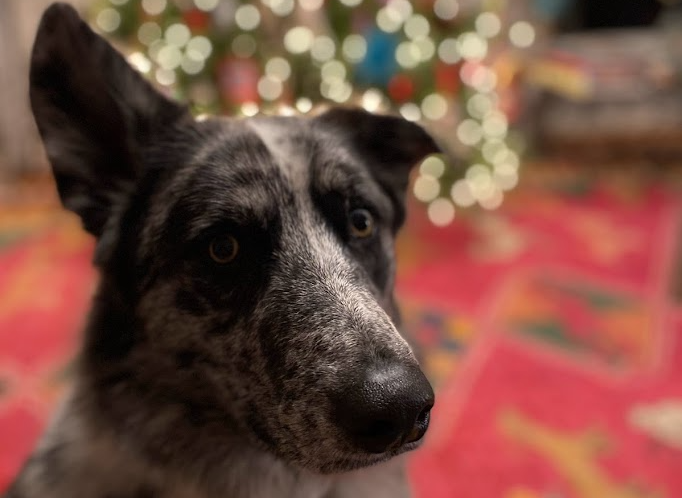They don't remember
Because they were never there.

Try as I might, as a person who writes online I cannot resist the urge to write something about the upcoming anniversary of the September 11th attacks. While I freely acknowledge that there’s little new to be said about that terrible day twenty years ago, it is a moment that has loomed large in our political and social discourse for a generation since, in ways both obvious and pernicious.
Unlike the still-roiling tragedy of our current decade, 9/11 did not directly touch most Americans. Sure, I know a few people who experienced it first-hand, or even who lost a friend or relative that day, but it did not touch everyone’s lives in the way that the pandemic has. It does not diminish the pain and suffering of that day to admit this; it was a personal tragedy for a relative few, and a horrifying spectacle for the rest of us.
And it was a spectacle; visceral, mesmerizing, cinematic horror, the kind of thing that compels one to remember the smallest banalities of where you were and what you were doing the moment you heard about it, even if you were personally unaffected; the kind of thing that compels small-town fire stations in Ohio to erect monuments to it and brands to trip over themselves annually in misguided attempts to be respectful that usually turn out to be the very opposite of that.
Seemingly from the day after the towers fell, there grew a crazed collective sense of you’d better not forget this, a sentiment expressed in bumper stickers and t-shirts, in public speeches and social media posts, and in Darryl Worley’s execrable bro-country schlock “Have You Forgotten?”, a song I would never believe got played on the radio had I not heard through my own car speakers:
Have you forgotten how it felt that day
To see your homeland under fire?
And her people blown away
Have you forgotten when those towers fell
We had neighbors still inside
Going through a living hell
And you say we shouldn't worry 'bout Bin Laden
Have you forgotten?
This song came out only 18 months after the attacks—a week and a half before the launch of the second war they spawned, a timing so perfectly coincidental I would not be surprised if you told me ten years from now it was a psy-op like the Scorpions’ “Winds of Change”. I digress, though; two minutes spent thinking about Darryl Worley in 2021 is three too many, and the sentiment he expressed certainly was not unique.
We cannot forget this, we repeatedly reassured ourselves, right down to the misquote of Virgil on the museum that now sits beneath the spot where it all happened.
Of course, it was then and is still now extremely unlikely that the cinematic terror of that day would ever be forgotten; whether it touched you personally or simply shocked you speechless from a distance, the images and stories that came from that day were far too stunning, far too heartbreaking to ever be forgotten.
What we really risk forgetting is what existed before.
It’s dangerous to tread into this rhetorical territory without inadvertently embracing an offshoot of American exceptionalism, one that suggests that wars were meant only for other people, or that the naïve sense of invincibility we were permitted to live during the brief golden era at the end of the 20th century was a natural state of being and not just a historical hot streak of good luck, but I’m going to try nonetheless.
I reject the beliefs of those who chest-thump and saber-rattle and denounce anyone who dares suggest that America isn’t the greatest country on earth; criticism and self-examination are more patriotic endeavors than blind fealty. Beyond those hawks and charlatans, though, there’s a larger group—one I often find myself in—who can fail to realize that the world they were born into, the world they grew up in, is a vastly different one than the world today’s young adults have now inhabited for their entire lives. September 11th, 2001, wasn’t necessarily the end of that earlier world, but it’s as close to a perfect marker as we have—an inflection point between the most carefree parts of the 20th century and the distinctly-not-carefree times we live in now.
ME [surly teenager, 1999]: I wish I lived in more interesting times
— actioncookbook, Guardians fan (@actioncookbook) 4:39 PM ∙ Mar 12, 2020
ME [the next 20 years]: no not like that
We’ve done these collective remembrances before, of course—at one year after and five years and ten and fifteen, but just as a switch flips at a certain point between high school reunions, twenty years is the first time it feels like we’re looking back on history instead of something that just happened. There’s a whole cohort of people now—adults, college graduates, full-fledged members of society, people who can fight and die in wars now—for whom 9/11 exists as just that: history, and not remembrance.
This generation has grown up learning about 9/11 in school lesson plans, and they’re able to understand the photogenic horror of that day just as well as anyone who watched it happen live on television can. They have seen exactly what happened; the hijacked planes, the fires, the building collapses, the lives ended and forever altered.
That will not be forgotten, but much of what existed before then already has been.
This generation—the oldest of whom, I stress, are now entering adulthood, if not there already—don’t know what it was like to not take your shoes off at the airport, or to submit to full-body explosives scans before boarding a commuter flight to Charlotte. They don’t know what it was like to not find heavily-armed police outside every mass gathering, nor to have fighter jets fly over a 100-yard flag once they were inside. They don’t remember a political discourse that was not poisoned by competitive war-mongering. They don’t know what it was like to be surprised by school shootings or violent uprisings or anything else people my age or older insist must be surprising. They don’t remember what it was like to not be at war, either technically or spiritually, what it was like to have optimism for democracy or any reasonable expectation that their basic needs would be met, that they would be protected, that we were in this together and that there was something we shared that was worth sacrificing for.
They don’t remember all the good things that this was supposedly an attack on.
So how can we ask them to remember a world they never lived in?
The primary remembrance of that day twenty years ago should of course be for the thousands of lives lost. Those lives can be honored, though, by fighting to get back the other things that we lost; where their lives cannot be restored, some of those freedoms still can. I don’t mean the bullshit freedoms, either, the ones people rail on about outside statehouses or at school board meetings—not the freedom from responsibility, but instead freedom borne of responsibility to each other, the freedom to live a life free of perpetual self-inflicted terror, the freedom to live in a place that’s not constantly tearing itself apart from paranoia and fear and all our worst impulses.
There’s a whole generation who knows exactly what happened on September 11th, 2001 but doesn’t remember the world that existed before.
We owe it to them to try to remember.
—Scott Hines (@actioncookbook)




